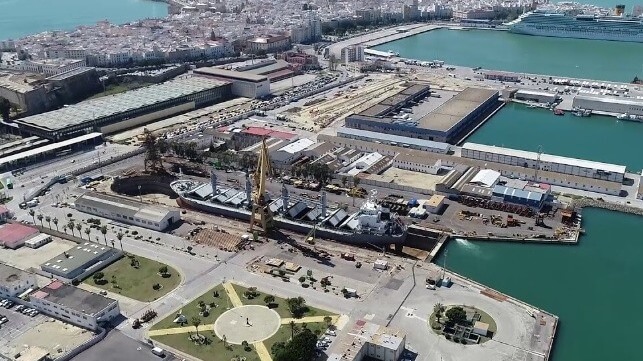Parliament Scrutinizes Spain's Share of UK Defense Shipbuilding Award

The UK Ministry of Defence faces a parliamentary inquiry over its decision to award the contract for the Royal Navy's new dry stores auxiliaries to a Spanish-British consortium instead of a domestic bidder.
The House of Commons' Defence Committee plans to ask tough questions of the administration of Prime Minister Rishi Sunak over the award, including the number of jobs that will be created or sustained in Spain. The pointed questions come from both Tory and Labour MPs, reflecting the breadth of skepticism about the wisdom of investing in more foreign-built fleet auxiliaries.
"[We] need to know why Government think it’s a good idea to export UK jobs to Spain. So much for the Government’s growth agenda," said Labour MP and former Minister of Defence Kevan Jones in a social media statement.
The consortium is led by Navantia, the Madrid-headquartered shipbuilder owned by the government of Spain. Other members include naval architect BMT and UK shipbuilder Harland & Wolff, which will carry out the majority of the work. H&W has pledged that at least 60 percent of the work will be completed in the UK, and the MoD has promised a "majority," but critics would prefer that the series is built with 100 percent UK labor.
"Ministers could have removed all doubt by building these ships entirely in the UK, as Labour would do," shadow defence secretary John Healey told the Daily Mail.
Shipbuilding and suppliers' unions have strenuoulsy protested the contract award. "Spain will be delighted with the Government’s approach to leveling-up," said Mike Clancy, General Secretary of the union Prospect. "It is short-sighted in the extreme to go with a bid that takes most of the high-value work and intellectual property overseas."
The UK has allowed foreign yards to bid on and win defense shipbuilding contracts before. In 2012, the state-subsidized South Korean shipbuilder DSME won the contract for the last UK fleet auxiliary order, the Tide-class oiler. At the time, the MoD noted that DSME was the last contractor standing in the bidding process, and it concluded that the foreign offer represented "best value for money for taxpayers." DSME delivered the class of oilers for a total combined cost of $540 million for four ships.
